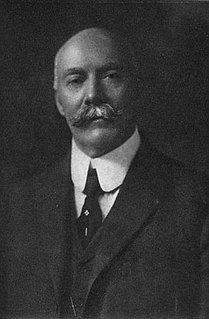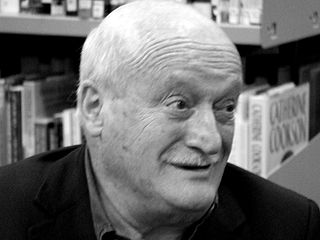A Quote by Andrew Carnegie
The average person puts only 25% of his energy and ability into his work.
Related Quotes
I've got more in common with a three-toed sloth than I have with Winston Churchill. There is no easy comparison with any modern politician. The more you read about him, the more completely amazed you are about what he did - his energy, his literary fecundity, his ability to work - just unbelievable energy.
The fact that labour is external to the worker, i.e., it does not belong to his intrinsic nature; that in his work, therefore he does not affirm himself but denies himself, does not feel content but unhappy, does not develop freely his physical and mental energy but mortifies his body and his mind. The worker therefore only feels himself outside his work, and in his work feels outside himself.
It is possible that an individual may be successful, largely because he conserves all his powers for individual achievement and does not put any of his energy into the training which will give him the ability to act with others. The individual acts promptly, and we are dazzled by his success while only dimly conscious of the inadequacy of his code.
There is a myth, sometimes widespread, that a person need only do inner work...that a man is entirely responsible for his own problems; and that to cure himself, he need only change himself....The fact is, a person is so formed by his surroundings, that his state of harmony depends entirely on his harmony with his surroundings.
Work kills no one, but worry has killed multitudes… Worry not only saps vitality and wastes energy, but it also seriously affects the quality of one's work. It cuts down ability. A man cannot get the highest quality of efficiency into his work when his mind is troubled. The mental faculties must have perfect freedom before they will give out their best. A troubled brain cannot think clearly, vigorously, and logically.
Be assured that every man's success is in proportion to his average ability. The meadow flowers spring and bloom where the watersannually deposit their slime, not where they reach in some freshet only. A man is not his hope, nor his despair, nor yet his past deed. We know not yet what we have done, still less what we are doing. Wait till evening, and other parts of our day's work will shine than we had thought at noon, and we shall discover the real purport of our toil. As when the farmer has reached the end of the furrow and looks back, he can tell best where the pressed earth shines most.
The true Indian sets no price upon either his property or his labor. His generosity is limited only by his strength and ability. He regards it as an honor to be selected for difficult or dangerous service and would think it shameful to ask for any reward, saying rather: "Let the person I serve express his thanks according to his own bringing up and his sense of honor. Each soul must meet the morning sun, the new sweet earth, and the Great Silence alone!. What is Silence? It is the Great Mystery! The Holy Silence is His voice!
Mass democracy, mass morality and the mass media thrive independently of the individual, who joins them only at the cost of at least a partial perversion of his instincts and insights. He pays for his social ease with what used to be called his soul - his discriminations, his uniqueness, his psychic energy, his self.


































